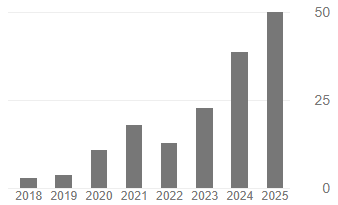Total Phenolic Content of Five Selected Malaysian Herbs
Keywords:
total phenolic content, folin-ciocalteu method, Malaysian herbsAbstract
Malaysian rainforests support a vast diversity of plant which approximately 15,000 plants species. These plants are diverse in chemical complexities that undoubtedly important source of bioactive compounds such as phenolic compounds. The objectives of this research are to extract and compared the total phenolic content (TPC) from Solanum lasiocarpum, Euodia redlevi, Colubrina asiatica, Ipomoea aquatica s. and Amaranthus viridis in hexane, dichloromethane (DCM) and methanol extracts respectively by using Soxhlet extractor. TPC are later determined using Folin-Ciocalteu reagent using the UV-Vis Spectrometer at 765 nm with Gallic acid as the standard. First plants were stripped, washed, and dried in an oven at 40 oC for 96 h and ground to powder and kept in a tight container until further use. Dried powders were extracted in Soxhlet extraction units with three different solvents until the solvent became colourless. Phenolic compound was measured according to the Folin-Ciocalteu method at absorbance of 765 nm using the UV-Vis Spectrometer. The statistically significant difference (p<0.05) between phenolic content among samples was analyzed by one-way ANOVA by using Microsoft excel. Results showed that Amaranthus Viridis extracted with DCM had the lowest phenolic content, which was 2.73±0.16 mg GAE/g sample. The highest phenolic content found at Ipomoea Aquatica S. which was extracted by Methanol was 50.6 mg GAE/g sample. Phenolic content for most samples shows significant differences between types of sample and types of solvent extraction. There are no significant differences between Colubrina Asiatica extract with hexane and methanol, Ipomoea Aquatica S. extract with hexane and DCM, Amaranthus Viridis extract with hexane and DCM. For hexane extraction, there are no significant differences between Solanum Lasiocarpum and Euodia Redlevi; Colubrina Asiatica and Ipomoea Aquatica S. For DCM extraction, there are no significant different between Solanum Lasiocarpum and Colubrina Asiatica; Colubrina Asiatica and Amaranthus Viridis; Euodia Redlevi and Ipomoea Aquatica S. For methanolic extract of all plants are significantly different (p<0.05) with each other.
Downloads
Published
How to Cite
Issue
Section
License
Copyright (c) 2022 Politeknik & Kolej Komuniti Journal of Engineering and Technology

This work is licensed under a Creative Commons Attribution-NonCommercial-NoDerivatives 4.0 International License.







